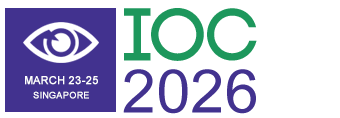HYBRID EVENT: You can participate in person at Singapore or Virtually from your home or work.
Patient Education, Patient Compliance, Patient Adherence/Satisfaction
Patient Education, Patient Compliance, Patient Adherence/Satisfaction
Patient education is the process of providing information to patients and their careers that will help them change their health behaviors or improve their health condition. Physicians must increase patients' health literacy in order to promote patient education and engagement. The ability to seek, understand, and act on health information is characterized as health literacy. Adherence is defined as the patient's "active, voluntary, and collaborative participation in a mutually acceptable course of conduct to achieve a therapeutic result." Choice and mutuality in goal formulation, treatment planning, and regimen administration are implicit in the concept of adherence.
Committee Members

Tim Jackson
King’s College London, United Kingdom
Shadrokh Nabili
University Hospitals of Morecambe Bay NHS Foundation Trust, United Kingdom
Anna Maria Bassi
University of Genoa, Italy IOC 2026 Speakers

Pio Conti
University of Chieti, Italy
Gowhar Ahmad
Florence Hospital Srinagar, India
Hyungju Park
Gangnam Tokyo Eye Clinic, Korea, Republic of




Title : Rare and interesting case of Goldenhar’s syndrome in a 3 years old male child
Gowhar Ahmad, Florence Hospital Srinagar, India
Title : Management of common vitreoretinal lesions: An overview and update
Tim Jackson, King’s College London, United Kingdom
Title : Optimizing astigmatism management in refractive cataract surgery
Shadrokh Nabili, University Hospitals of Morecambe Bay NHS Foundation Trust, United Kingdom
Title : Comparative outcomes of a newly modified trabeculectomy versus conventional trabeculectomy
Hyungju Park, Gangnam Tokyo Eye Clinic, Korea, Republic of
Title : Lumevoq gene therapy in leber hereditary optic neuropathy
Magali Taiel, GenSight Biologics, France
Title : Intra orbital wooden foreign bodies: A retrospective study of 30 cases
Chandana Chakraborti, Regional Institute of Ophthalmology, Medical College & Hospital, India